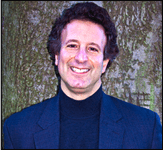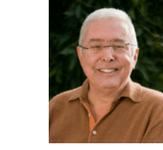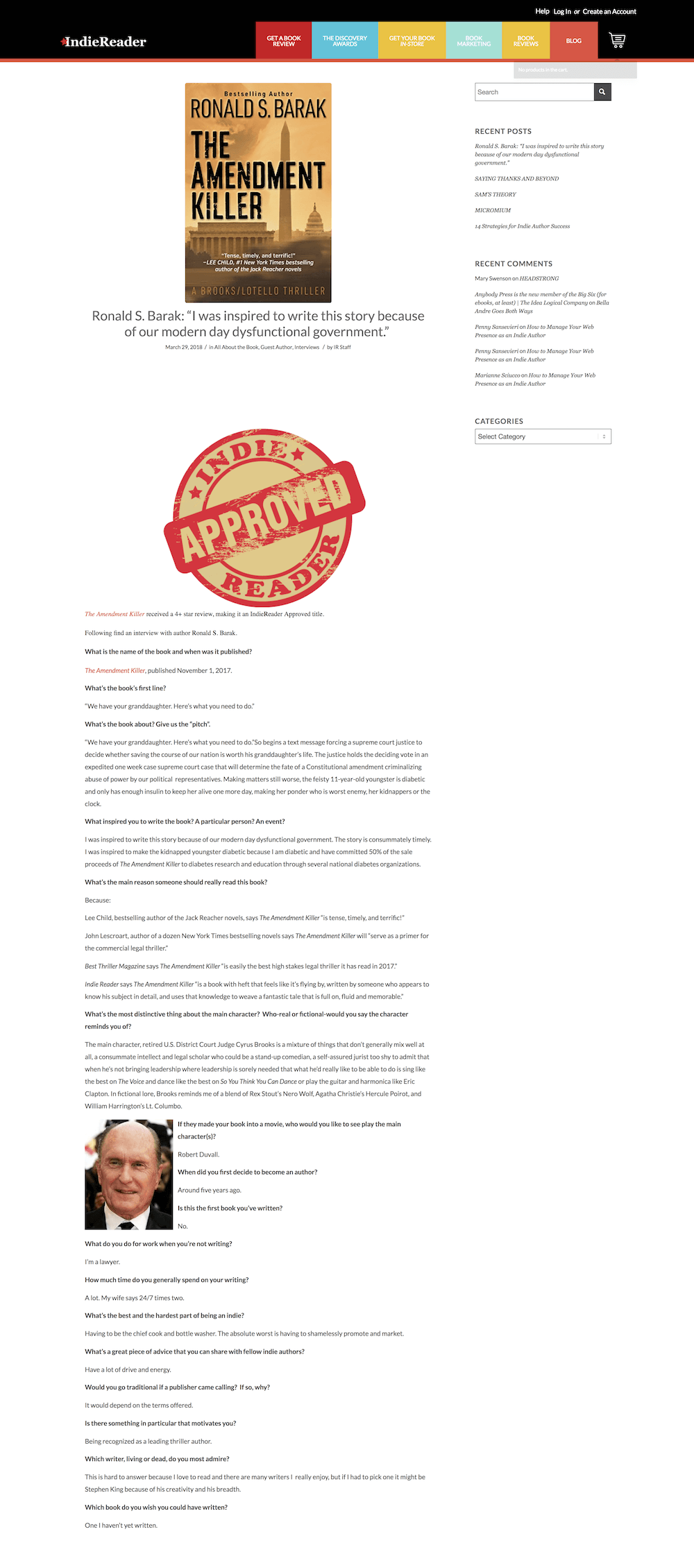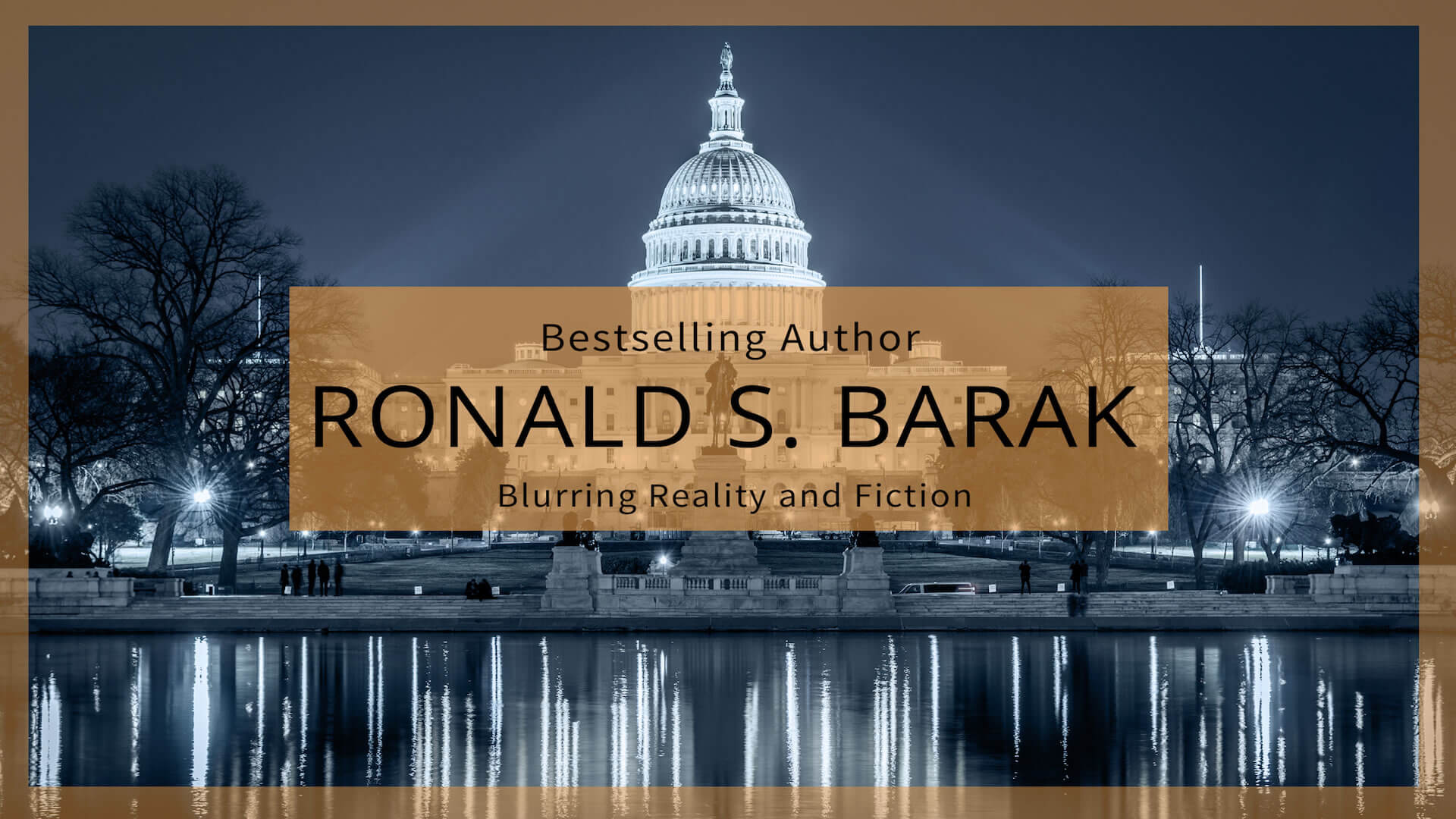[sta_anchor id=”jon” /]


Jon Has The Questions
Ron Has The Answers
LET'S CALL THEM . . . Q & A
Editor’s Note: Jon Land is the bestselling author of over 25 novels. He is a Magna Cum Laude graduate of Brown University. His diverse background includes an associate membership in the U.S. Special Forces, a 25-year career in martial arts, and volunteering in schools to help young people learn and enjoy the process of writing. That’s pretty impressive, and why we made his picture above (slightly) bigger than Ron’s. Oh yeah, and also because Jon was the first to support The Amendment Killer and to encourage Ron to stick with it.
Q: “So, tell me, Ron, how does it feel to be a big-time novelist these days?”
A: “Right, Jon! I should be putting that question to you. I think I have a little further to go to get to where you are. And where those other authors like you who have so graciously remarked on my latest effort, The Amendment Killer. But I’m working on it.”
Q: “So, Ron, can we . . . talk?”
Second Editor’s Note: We interrupt this broadcast for a brief moment. For those who can’t see, Jon’s now pacing the room, microphone in hand, gleam in eye, the audience watching eagerly. Audience? What audience, you ask? Well, as many of you know, Jon is at the top of his game when he is pacing the room, microphone in hand, gleam in eye, in front of a large audience. The larger, the better. So, as the moderator here, I decided to . . . set the stage. Besides, how could “you” ask such a question if you weren’t . . . part of that audience? Now shush up, so we can quit stalling, and get on with this interview.
A: “Sure, Jon, of course. Whatever you say.”
Q: “Ok, then, let’s start at the beginning. What’s the first thing you remember, your first conscious moment?
A: “Well, the breakfast I had this morning was pretty good.”
Q: “C’mon, Ron, I’m not lobbing you a softball here. We need the real answer. What are you hiding from us?”
A: “Okay, you’re pretty good at this investigative reporting business, Jon. The first thing I remember was the look on my parents’ faces when they found out I had been expelled from nursery school.”
Q: “Expelled? Or just suspended, like for a day or two? And what, pray tell, did you do to achieve that rather extraordinary status?”
A: “It was expelled, Jon. I couldn’t return. Ever. It was something I did to the little girls in my class. I was caught opening—”
Q: “Stop! Too much information. We don’t—”
A: “—their lunch pails. Stealing their lunches.”
Q: “And you did that why, Ron?”
A: “I didn’t like my mom’s baloney sandwiches.”
Q: “Fascinating. I’m sure we could talk about this all day. But let’s not. I know you’re an accomplished lawyer. Ignoring the contracts and legal briefs you’ve written, what’s the first piece of non-legal writing you’ve published?”
A: “Non-legal? I don’t write anything that’s illegal.” Oh, wait, I getcha. Well, the first several books I published were ‘how to’ legal books. Boring stuff, but, hey, that was how lawyers demonstrated their expertise. And attracted client referrals from other law firms. Today, all law firms claim to be experts at everything. Like the law firm asked if it could render an opinion on a particular matter, said ‘Sure, do you want it in the affirmative or the negative?’”
Q: “We can ‘stipulate’ to the boring nature of those how to law books, counselor. When did you first write something a bit more . . . exciting?”
A: “Well, I wrote my first political/legal thriller about seven years ago. I remember because it was on a dark and stormy night. It was the first in my Brooks/Lotello series.”
Q: “Now we’re getting somewhere, Ron. How did you make the transition from the ‘how to’ lawyering books to fiction?”
A: “I’d like to say I had wanted to write fiction all of my life and I just finally jumped in when I had a spare moment, but that wouldn’t be the truth. And lawyers never lie. The truth is I did it on a dare from some friends. I’m kind of competitive. I pretended I hadn’t heard the challenge, but I knew I was going to have to give it . . . a shot.
Q: “Pun intended?”
A: “Well, it’s not like we wrote this out in advance and I had some warning, Jon. My first draft of my first novel. I didn’t know what I was doing, but I knew I was hooked. I loved it. Writing’s a lot more fun than practicing law. And when I meet someone for the first time and they ask me what I do, the reaction is much more positive today when I say I’m a writer than when I used to say I’m a lawyer. So, after that first novel, I spent a bunch of time learning how to write, reading ‘how to’ write books and going to writing conferences. I met you at the first writing conference I ever attended, Jon. ThrillerFest.”
Q: “Hmm, you say lawyers never lie, Ron. But maybe they are occasionally prone to exaggerate a little. You said you answered the bell when you were challenged to write a novel because . . . you’re kind of competitive. As a former Olympic athlete, I’d say you’re kind of competitive. And you say you didn’t grasp how to write that first novel. Not bad that your debut novel was an Amazon number one bestselling hard boiled mystery. I know; you showed me the screenshot you took of the Amazon ranking. So let’s talk about your writing habits. I take it you don’t write only on dark and stormy nights. Especially in sunny Southern California where you live. Are you a plotter or a pantser?”
A: “I don’t really have any magic rules or habits. I write whenever the force is with me, the law clients cut me a little slack, and the Golf Gods are not beckoning. Mornings, afternoons, evenings. Wherever my laptop and I find ourselves with a few spare hours. And some good music. Sometimes I write for a few hours. Sometimes for ten or twelve hours. When I’m on a roll, I don’t like to stop. I forget about time. I forget about food. It’s just me and the keyboard. And the music. And, I’m definitely a pantser. When I start a book, I know the general theme and I know how I want the story to end. I tend to write short chapters because, as reader, I prefer to read short chapters. I like to give the reader a chance to come up for air. And to say ‘Oh, one more chapter,’ before they turn out the lights. It also lets me see more clearly where the next chapter is likely to be heading. I say ‘likely’ because that sometimes changes.”
Q: “Let’s talk about your latest, The Amendment Killer, due out November 2017. It’s quite a story, an amendment to our U.S. Constitution criminalizing abuse and corruption on the part of our political representatives and the kidnapping of the 11-year-old diabetic granddaughter of the Supreme Court Justice believed to hold the deciding vote in a lawsuit brought to the Supreme Court by a self-serving Congress seeking to invalidate the amendment. How did you come up with that story line and did you think it would get wings?”
A: “They say writers write what they know. Or should stick to what they know. At the very least it cuts down on research time. In my case, I’m a political junkie with an extensive courtroom background. I like to write timely, tense stories that blur the lines of modern day reality and my fiction.”
Q: That’s the brand on your website, www.ronaldsbarak.com, blurring reality and fiction. But why did you choose to afflict your kidnapped youngster with diabetes? Wasn’t she already in enough of a pickle being kidnapped by some anonymous, mysterious force to no entirely clear end?”
A: “The Amendment Killer is about the dysfunctional state of our political system today. It’s a severe problem that’s not going away anytime soon, at least not until ‘we the people’ step up and do something about it. The same can be said about diabetes. Thirty million Americans are diabetic today. One in every ten Americans is diabetic. And, like our political system, it’s getting worse by the day. We the people also have to step up and do something about diabetes. While I write first and foremost to entertain, I also like to draw attention where attention is needed. Those two goals—entertaining and provoking—are not mutually exclusive.”
Q: “You make no secret about the fact that you’re diabetic. Were you always open about that?”
A: “When I was first diagnosed, I was in denial. I wouldn’t even admit it to myself. I thought it was a death sentence and I wasn’t ready to accept it. Gradually, I came to recognize that the way to stop diabetes was not to deny it, but to manage it. It is clearly manageable. But the first step is to understand it. You can manage your teeth and gums with good dental hygiene. Diabetics can manage their diabetes through good blood sugar hygiene. I want to lead by example, to bring home the point that diabetes is not a death sentence if properly managed. I chose to make my young kidnapped victim diabetic because she has the potential to reach far more of our diabetics than I can.”
Q: “But you’re doing more than talking the talk. You’re also walking the walk. You and your wife, Barbie, have committed 50% of the net book sale revenue of The Amendment Killer to diabetes research and education. That’s pretty hefty, isn’t it?”
A: “I’m not writing to change my family’s standard of living. Sure, I want to sell as many books as I can because I love connecting with my readers. That’s a real high for me. However, in the case of The Amendment Killer I’m also trying to join those who are leading by example, contributing what they can to finding a cure for this disease, and by sending a message that it’s in all of our best interests to contribute what we can to finding a cure for diabetes, and to increasing awareness of how to deal with and manage it until we have that cure.”
Q: “Okay, I get it. I see how you can lead by example to address diabetes. But how are you leading by example to improve the political system in our country today.”
A: “Many years ago, when I was involved in amateur sports, I saw first-hand how harmful the decades old battle between the NCAA and the AAU to control U.S. amateur sports was for our amateur athletes. I wanted to use my gift of gab to do something about it. When I was still in law school, I published an article about how destructive that dispute was to our American youth. I didn’t just write that article. I appended to it proposed legislation to compel the end of that dispute. The dean of my law school sent the article and proposed legislation to representatives of Congress. Shortly thereafter, my language was adopted and introduced as a bill in the U.S. Senate. Before it came to a vote, and moved on to the House of Representatives, the NCAA and the AAU finally saw the handwriting on the wall and settled their decades old dispute in a matter of months—before others might settle it less favorably for them. In that case, leading by example was coming up with a pragmatic, specific proposed solution to the problem.”
Q: “And in The Amendment Killer?”
A: “The idea is exactly the same. The Amendment Killer is premised on a constitutional amendment that would end political abuse and corruption in our country overnight. And I didn’t just generalize about it. I drafted the precise amendment that can achieve it. You can see it at www.28th.info.”
Q: “I’ve read it. It’s as compelling as it is simple and straightforward. But why the 28th?”
A: “Because our Constitution already has 27 amendments.”
Q: “And you really believe this is possible?”
A: “What I really believe is that the state of governance in our country today is in shambles. Our political ‘leaders’ have too much at stake to fix it. They think they are there to be served, rather than to serve. It’s a classic conflict of interest that they will never fix. The only ones who can fix it are we the people. My objective, again, is to lead by example and see what might follow.”
Q: “And to write an incredibly entertaining story, which you have certainly done. Before we go, which of the characters in The Amendment Killer do you like the best, and why?”
A: “I like all of the characters in The Amendment Killer because they all play important roles (another one of those puns, I guess), but my favorite character of all is Cyrus Brooks, the retired judge who in The Amendment Killer is the lawyer hired to defend the validity of the challenged 28th Amendment. In spite of his aching joints, Cyrus Brooks dreams of being a superstar musician, a superstar dancer, a superstar actor, a rock star, and a superstar athlete. He is none of those. And he never will be. But he is a superstar dreamer. And a superstar person. I dream of being Cyrus Brooks.”
![]()
//

![]()
CMashlovestoread.com, February 2, 2018:

![]()


